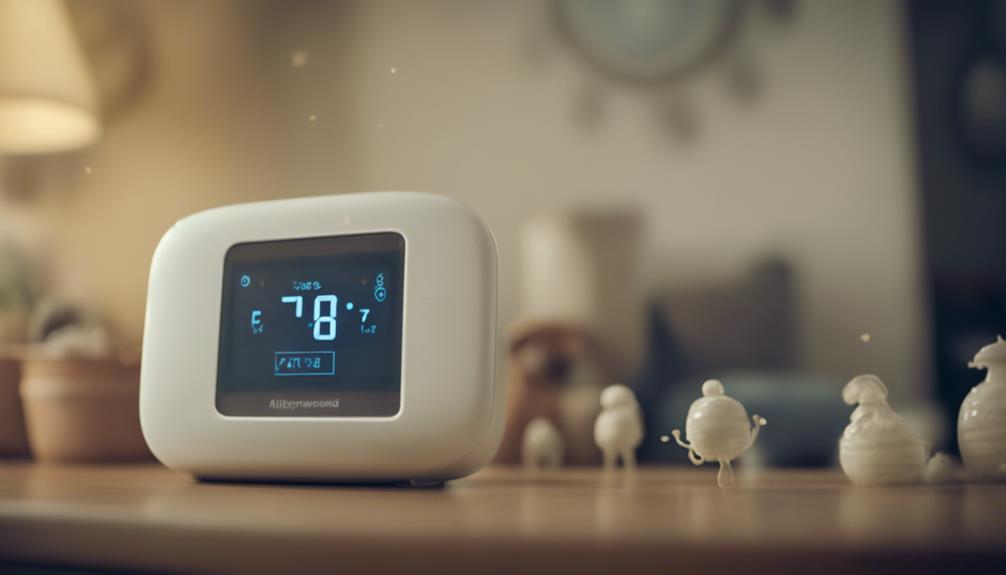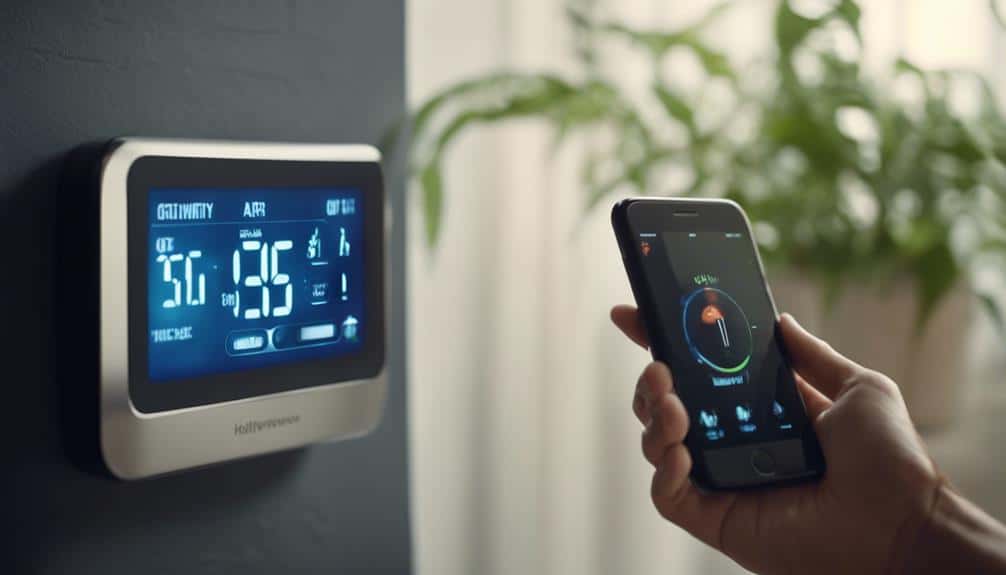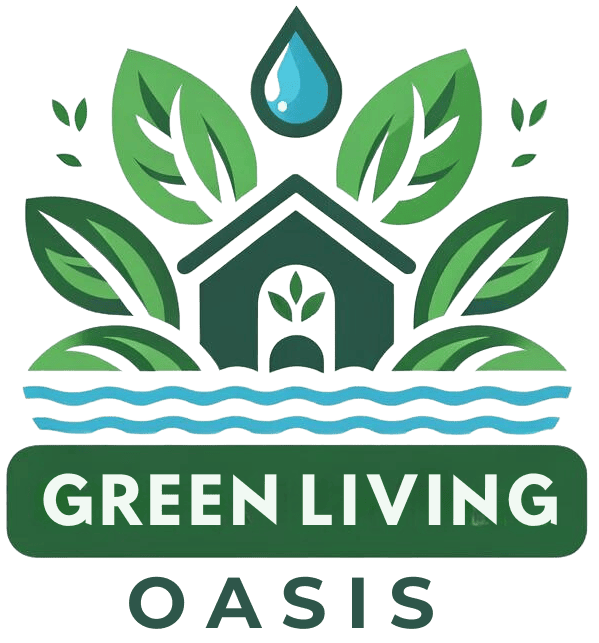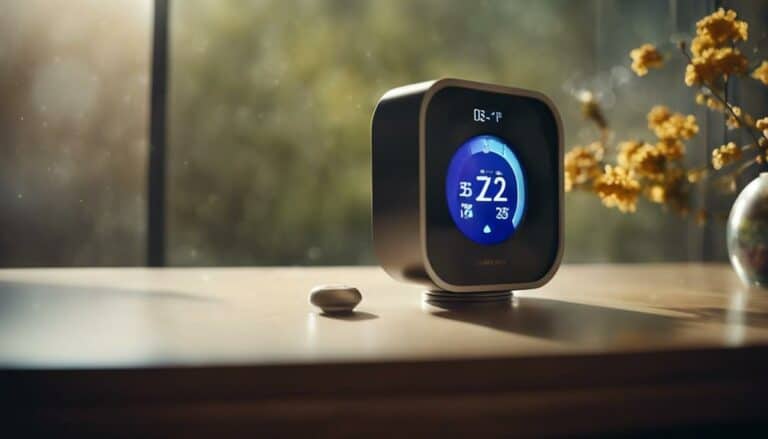Have you ever wondered if there's a smarter way to combat your allergy symptoms indoors? Intelligent climate control systems, equipped with air purification and HEPA filters, offer a promising solution. They don't just cool or heat your space; they tailor the environment to minimize allergens and improve your respiratory health.
By controlling humidity and employing smart sensors, these systems create an ideal living environment for allergy sufferers. But how do you choose the right system for your needs, and what should you consider for installation and maintenance?
Let's explore how these intelligent systems can be a game-changer in your fight against allergies.
Key Takeaways
- Smart thermostats with HEPA filters significantly reduce indoor allergens like dust and pollen.
- Advanced humidity control helps prevent the growth of mold and dust mites.
- Real-time pollutant monitoring and mobile app integration offer personalized comfort for allergy sufferers.
- Regular maintenance, such as filter replacement, ensures the system's effectiveness in improving respiratory health.
Understanding Smart Thermostats
Smart thermostats, equipped with advanced features like HEPA filters and pollutant sensors, can greatly enhance indoor air quality for allergy sufferers by adeptly managing temperature, humidity, and air purity.
These intelligent devices offer personalized comfort settings, ensuring ideal allergy relief through precise temperature control and humidity management. With air purification capabilities, they tackle allergen reduction head-on, integrating HEPA filters to cleanse your indoor environment.
Real-time monitoring keeps you informed about air quality, detecting allergens and pollutants swiftly. Plus, mobile app integration allows you to control and monitor your home's climate from anywhere, ensuring your space is always set to your comfort and health needs.
Smart thermostats stand as a complete solution for managing allergens and maintaining a healthier indoor atmosphere.
Key Benefits for Allergies

Building on the capabilities of smart thermostats, let's explore how they specifically benefit allergy sufferers by enhancing indoor air quality. Intelligent climate control systems are a game-changer for those looking for relief from allergy symptoms. These systems, equipped with advanced technologies like air purifiers and HEPA filters, offer notable advantages:
- Improved Indoor Air Quality: They notably reduce common allergens such as dust, pollen, and pet dander.
- Prevention of Mold and Dust Mites: By controlling humidity, they inhibit the growth of mold and dust mites.
- Personalized Comfort Settings: Smart sensors allow for adjustments based on individual needs, providing ideal allergy relief.
- Enhanced Respiratory Health: The overall improvement in air quality contributes to better respiratory health and long-term well-being.
Optimizing Air Quality

To maximize your comfort and health, intelligent climate control systems can optimize air quality through advanced filtration and humidity control technologies. These systems integrate air purification and HEPA filters to tackle indoor allergens head-on, greatly reducing allergen presence in your environment.
Smart sensors play a vital role by detecting pollutants and adjusting the system for allergen reduction, ensuring your space is tailored for your respiratory health. This personalized comfort is a game-changer for allergy sufferers, offering a shield against common triggers like mold and dust mites.
Maintenance and Setup

For best performance, you'll need to clean or replace your air purifier's filters every 6 months. Regular upkeep not only boosts your unit's efficiency but also extends its lifespan.
Follow these steps to make sure your air purifier functions at its best:
- Follow Manufacturer's Instructions: Adhere strictly to guidelines for filter replacement to maintain efficiency.
- Check Filter Indicators: Use filter replacement indicators or reminders to know when it's time for a new HEPA filter.
- Ensure Good Airflow: Place air purifiers in strategic locations with unobstructed airflow for effective air filtration.
- Strategic Locations: Setting up in places most affected by allergens can maximize efficiency.
Selecting the Right System

After ensuring your air purifier's maintenance, it's time to focus on selecting the right climate control system that meets your needs. Opt for systems with HEPA filters and air purification integration to greatly reduce allergens, improving indoor air quality and your respiratory health. Humidity control is essential to prevent mold and dust mite growth, offering relief from allergy and asthma symptoms.
| Feature | Benefit |
|---|---|
| HEPA filters | Reduces allergens, improving respiratory health |
| Humidity control | Prevents mold, offering allergy relief |
| Smart sensors | Detects pollutants for personalized comfort |
| Air purification integration | Enhances indoor air quality, easing asthma symptoms |
Choose climate control systems with smart sensors for pollutant detection, ensuring personalized comfort settings and long-term well-being.
Frequently Asked Questions
What Is the Best Climate for Allergy Sufferers?
For allergy sufferers, the best climate includes low humidity for mold prevention, controlled pollen levels, and seasonal adjustments. Use allergen bedding, manage dust mites, and allergy-proof your home for ultimate indoor and outdoor comfort.
What Is the Best Heating System for Allergies?
For your allergies, radiant floors and hydronic heating are tops. They don't push allergens around like forced air. Add in regular duct cleaning, allergy-proof filters, and air filtration to breathe easier at home.
Do Air Purifiers Work With Allergies?
Yes, air purifiers with HEPA filters effectively remove allergy triggers like pollen and dust mites. They require regular maintenance, but their smart features, low noise levels, and energy efficiency make them great for allergen removal.
Is Fan or AC Better for Allergies?
For allergies, AC's better than fans. It controls humidity, reduces pollen, and with HEPA filters, controls dust. Remember, clean air depends on regular filter maintenance. Fans just move air, lacking the allergen avoidance AC offers.
Conclusion
To sum up, if you're battling allergies, investing in an intelligent climate control system could be a game-changer for you. By integrating air purification, humidity control, and real-time air quality monitoring, these systems not only enhance your comfort but also greatly reduce allergens in your home.
Remember, choosing the right system and keeping up with maintenance is key. So, take the step towards cleaner air and a healthier life; it's worth it for your well-being.

